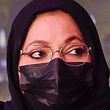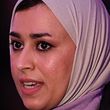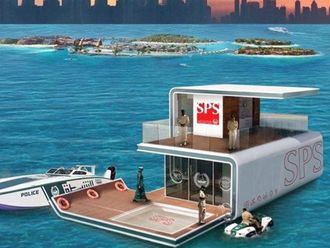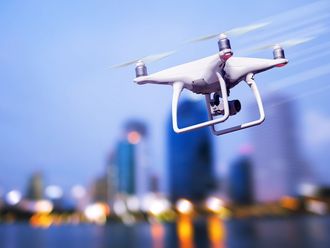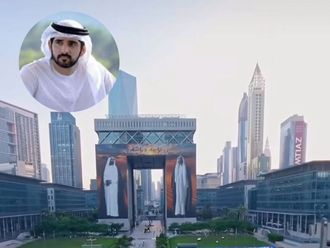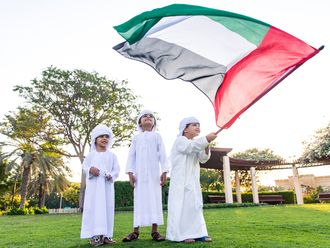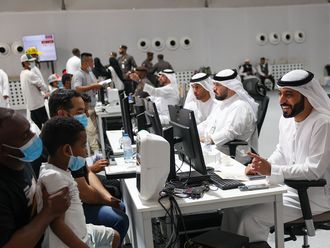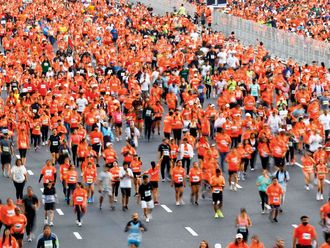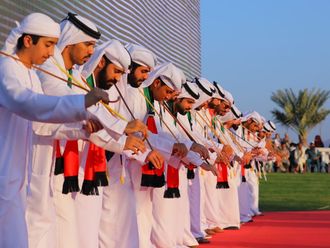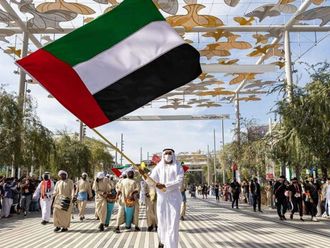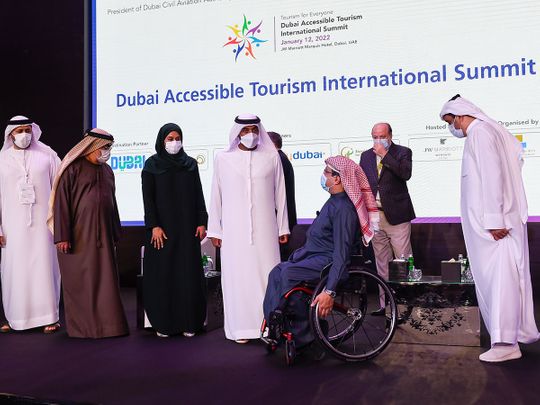
Dubai: Leaders, experts, other stakeholders from the UAE and around the world called upon cities and airports to offer better services, facilities to people of determination in order to make travel more accessible to them.
A panel of experts, including Paralympic athletes, leaders and experts with disabilities unanimously raised the need for travel facilities to be improved at the second edition of Dubai Accessible Tourism International Summit (DATIS 2022) held here today.
The day-long conference was held under the patronage of Sheikh Ahmed bin Saeed Al Maktoum, President of Dubai Civil Aviation Authority, Chairman of Dubai Airports, Chairman and Chief Executive of Emirates Airline and Group. In his message, Sheikh Ahmed said: “The UAE has placed the comfort and care of people of Determination as a core pillar of our community’s wellbeing. In line with the vision of our leadership to be amongst the friendliest countries in the world for people of determination, we are pleased to host the second edition of DATIS, to showcase how we have made our cities more accessible and enjoyable for millions of tourists from around the world.”
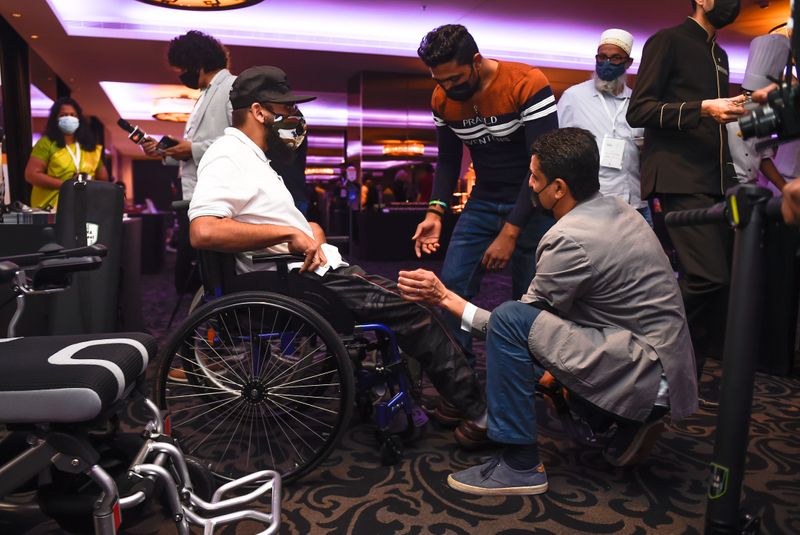
‘Improving cities and tourist facilities’
“The Summit will give us a chance to meet like-minded leaders and experts from across the globe to share their experiences and best practices. This will help us further improve our cities and tourist facilities, including hotels, resorts, airports, transport services, shopping malls, beaches, parks and museums to serve the requirements of tourists with disabilities from around the world and ensure they get the best possible services and experience in our country,” Sheikh Ahmed added.
More than 20 speakers and experts from government and private agencies, in addition to representatives of IATA, Airports Council International, the World Tourism Organization and the World Health Organization, participated in the summit, which was held in both personal and visual formats . In addition to the participation of international experts in the field of transportation, global design and facilitated mobility . The conference also provided two training sessions on best practices in dealing with travelers and hotel guests.
Majid Usaimi, the first National Ambassador from the UAE, president of the Asian Paralympic Committee, chief executive officer of Dubai Club for People of Determination was the moderator for the day-long session. Usaimi told Gulf News: “There are currently more than a billion people disabled in the world. 15 per cent of the population in the world has a disability and there is a need to ensure proper accessibility and facilities for them during travel.
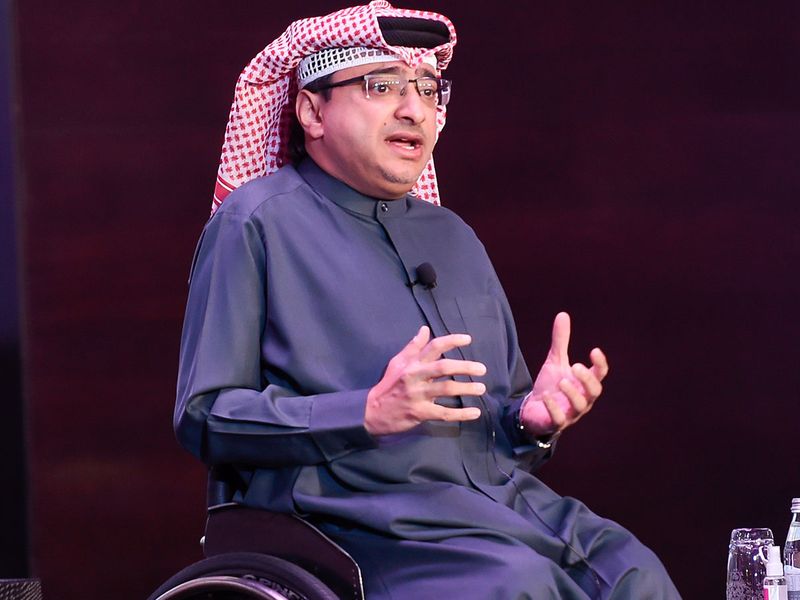
“The purpose of this conference is to ensure greater access and facilities for people of determination. We have some suggestions that we will take up with the stakeholders on this. We will ensure it is done.”
The challenges
Manar Abdul Qader Al Hammadi, human resources specialist at the General Directorate of Residency and Foreigners Affairs — Dubai (GDRFA-Dubai), said: “As a blind person, I face a challenge with touch screens. In some hotels, everything is operated on touch screens. I cannot see which bottle is shampoo, or which is conditioner, which is shower gel. Stakeholders can go a long way to make things more user-friendly for people of determination.
“In some countries and airports, there are certain equipment I am not allowed to carry with me into the aircraft. These help me with navigation, but owing to different rules in different countries, I am not allowed to carry them. We hope that standards will be set for people of determination around the world. It should be a standard facility that airports around the world must adopt.”
Dawood Al Hajri, Director General of Dubai Municipality, said that Dubai Municipality has adopted the issuance of the "Dubai Code " for the Qualified Environment, in the design of buildings, to be classified as friendly to people of determination, suitable for them, such as special parking, suitable elevators and wheelchairs, in addition to providing free entry for people of determination, and some of their companions.
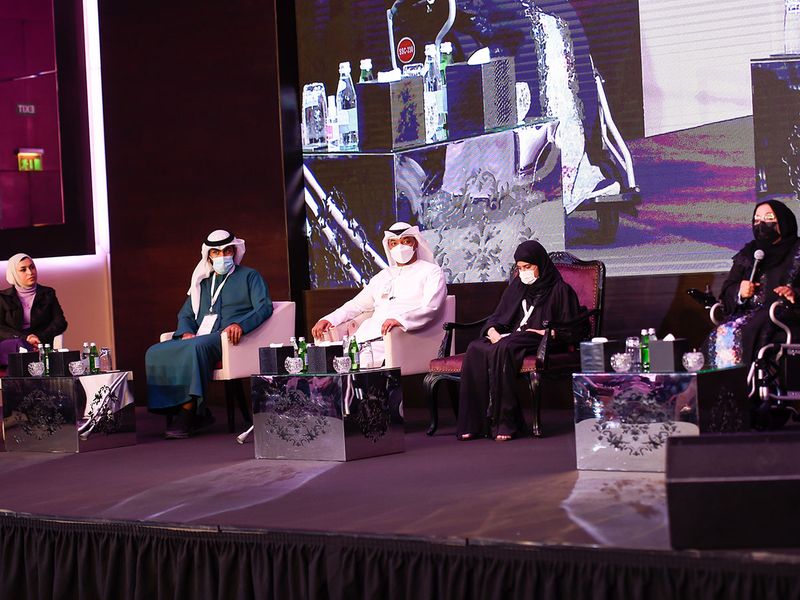
Standardised facilities
Ayesha Almehairi, Paralympic athlete and a Dubai Customs officer, said much of the problem stems from the fact that people do not know how to deal with people of determination. “I suggest that every person of determination should be issued a passport. This passport will carry details about the person, the nature of disability and the services and facilities required by the person. This will be helpful as it will be standardised and people across cities and airports will know how to offer the best possible service to people of determination.”
Yasmeen Al-Qallaf, founder and director-general of Al-Faisal Universal Rehabilitation Centre Kuwait, said as a parent of an autistic child, she felt that airports around the world could do better by creating a more friendly environment for children with disabilities. “For example I was very touched and impressed that Abu Dhabi and Dubai airports have a sensory room. As you know children with autism are sensitive to smell and sound. During travel, my child particularly becomes restless and is not able to stand still. People don’t understand as from the outside he looks normal. But he has autism. People think we are bad parents and don’t know how to control our children.”
A passport to explain it all
Al-Qallaf further said: “Once, I took a hand-written note into the aircraft and distributed it to all the passengers. I wrote there that my child was autistic and to please bear with us if he would be running around restless. Having a passport that explains his situation will go a long way in helping us.”
Usaimi said all efforts will be made to take into consideration people of determination and ensure results are achieved to help ease their travel woes.
20 measures for smooth travel for travellers of determination:
1. Providing professional staff who are skilled in dealing with travelers of determination with their various needs at check-in points, security checks, passports, and other points inside the airport facilities, and inviting staff to deal with travelers with special needs as ordinary travelers.
2. Provide guiding plates in sign language (indicative video) in the premises of airports to help travelers from the owners of motivation and guide them to the right area to complete the travel procedures.
3. Providing sign language interpreters at airports to assist passengers with hearing impairments.
4. Providing a special vehicle to check-in for passengers with mobility disabilities to enable them to enjoy the airport experience like any normal passenger, and to have the opportunity to roam the duty-free market and taste food and drinks in airport restaurants and cafes instead of placing them in a special lounge pending the time of their flight.
5. Providing inspection devices for people of determination, especially (motor category) to avoid embarrassment and inconvenience that the traveler may be exposed to at some airports when he is removed from the wheelchair for security checks.
6. Providing a special mechanism that allows travelers of determination to collect their luggage quickly to avoid them waiting for a long time at the baggage claim area.
7. Providing close parking for people of determination at the arrivals area.
8. Generalizing the automated system to open the doors of toilets at airports to facilitate the entry process, especially for travelers with mobility disabilities, because the doors in some airports are heavy and require physical strength to open them.
9. Allocating a site for people of determination at airline reservation centers to facilitate the booking process, with the need to fulfill the services they requested to be provided on board the aircraft during the booking process.
10. Training the crews of tankers on how to deal with travelers of determination and granting them their rights stipulated in accordance with the laws of international institutions concerned with the transport and travel sector.
11. Providing a sufficient number of wheelchairs inside the cabin of the plane for use in transporting people of determination, as carriers usually provide only one chair, while more than one passenger with a mobility disability may be present on the same flight.
12. Allocating toilets inside the aircraft that are suitable for passengers with mobility disabilities, in terms of space and ability to move and rotate.
13. Provide sign language to explain safety instructions during flights.
14. Providing aircraft with the land line for passengers with visual disabilities and providing them with their own white cane, in addition to providing Braille language inside the aircraft within the movie screens.
15. Providing programs and series translated into sign language so that the traveler with hearing disabilities can enjoy watching them during the flight.
16. Providing (iPad) equipped to serve passengers with hearing disabilities, with the aim of facilitating the task of the flight attendant in serving passengers of this category.
17. Allocating seats with foldable handles to enable passengers of people of determination to move freely.
18. Design a kind of document to include the technical details of the equipment used by people with disability for easy identification and to provide help if needed.
19. Provide special friendly toilet facilities, especially in aircraft.
20. Ensure proper transportation from airport to their destinations and back.



